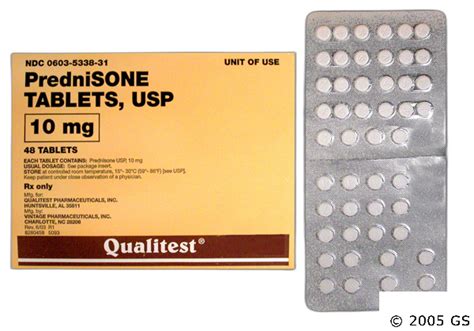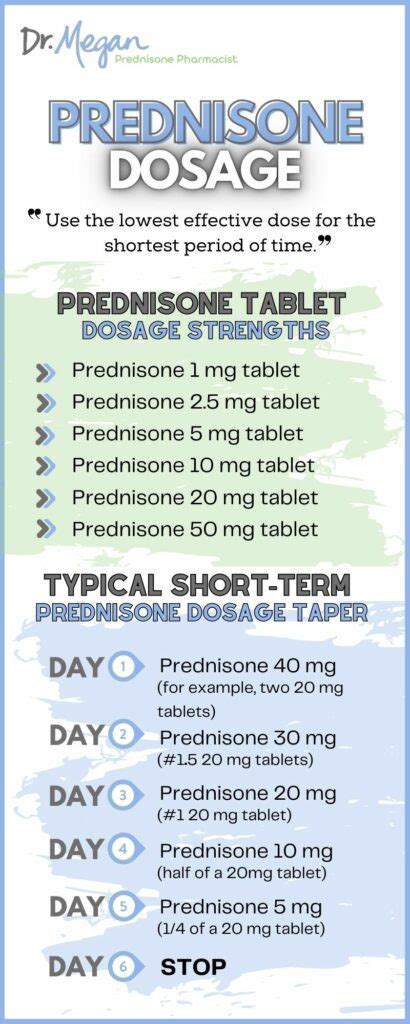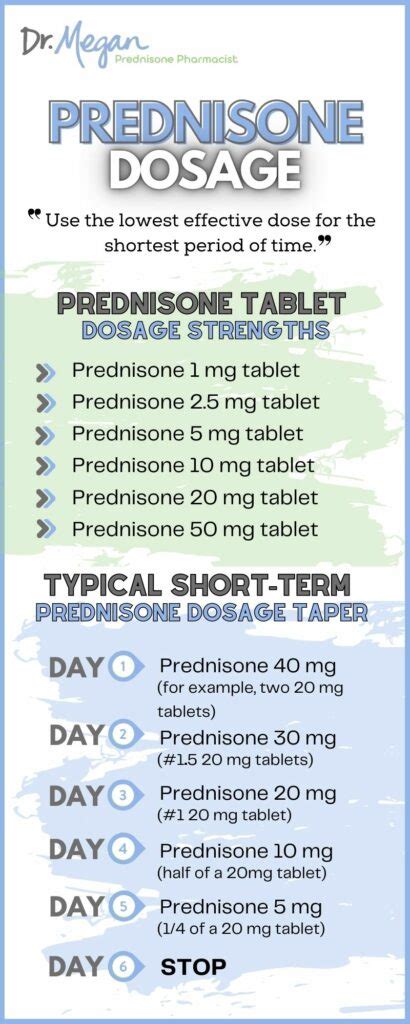Intro
Discover key prednisone facts, including side effects, dosage, and usage, to understand this steroid medications benefits and risks, exploring long-term effects, interactions, and withdrawal symptoms.
Prednisone is a synthetic corticosteroid that has been widely used in the medical field for its potent anti-inflammatory and immunosuppressive properties. It is prescribed to treat a variety of conditions, including asthma, rheumatoid arthritis, and certain types of cancer. Despite its effectiveness, prednisone can have significant side effects, and its use requires careful consideration and monitoring. In this article, we will delve into the world of prednisone, exploring its mechanisms, benefits, and risks, as well as providing practical advice for those who are taking or considering taking this medication.
The importance of understanding prednisone cannot be overstated. As a medication that affects the body's hormonal balance, it has the potential to cause significant changes in the way the body functions. From influencing blood sugar levels to impacting bone density, the effects of prednisone are far-reaching. Furthermore, the long-term use of prednisone can lead to dependency, making it essential to use this medication judiciously and under the guidance of a healthcare professional. By exploring the facts about prednisone, individuals can make informed decisions about their treatment and minimize the risk of adverse effects.
For those who are new to prednisone, it is essential to understand how this medication works. Prednisone is a synthetic version of the hormone cortisol, which is produced naturally by the adrenal gland. By mimicking the effects of cortisol, prednisone helps to reduce inflammation and suppress the immune system. This can be beneficial in treating conditions such as asthma, where inflammation can cause airway constriction and breathing difficulties. However, the use of prednisone also requires careful monitoring, as it can have significant side effects, particularly when taken in high doses or for extended periods.
What is Prednisone?

How Does Prednisone Work?
Prednisone works by binding to specific receptors in the body, which triggers a response that helps to reduce inflammation and suppress the immune system. This can be beneficial in treating conditions such as rheumatoid arthritis, where inflammation can cause joint pain and damage. However, the use of prednisone also requires careful monitoring, as it can have significant side effects, particularly when taken in high doses or for extended periods. Some of the common side effects of prednisone include weight gain, mood changes, and increased blood sugar levels.Benefits of Prednisone

Risks and Side Effects of Prednisone
While prednisone can be an effective medication, it also carries significant risks and side effects. Some of the common side effects of prednisone include: * Weight gain * Mood changes, such as anxiety and depression * Increased blood sugar levels * Increased risk of infection * Osteoporosis and bone fractures * Cataracts and glaucoma * Acne and skin changesHow to Take Prednisone

Interactions with Other Medications
Prednisone can interact with other medications, including: * Blood thinners, such as warfarin * Diabetes medications, such as metformin * Blood pressure medications, such as beta blockers * Antidepressants, such as selective serotonin reuptake inhibitors (SSRIs) * Antibiotics, such as erythromycinLong-Term Use of Prednisone

Alternatives to Prednisone
For those who are concerned about the side effects of prednisone, there are alternative medications and treatments available. Some of the alternatives to prednisone include: * Other corticosteroids, such as hydrocortisone * Non-steroidal anti-inflammatory drugs (NSAIDs), such as ibuprofen * Biologic medications, such as etanercept * Lifestyle changes, such as diet and exerciseConclusion and Next Steps

We invite you to share your thoughts and experiences with prednisone in the comments below. Have you taken prednisone for a medical condition? What were your experiences with the medication? Do you have any questions or concerns about prednisone? Share your story and help others who may be considering this medication.
What is the typical dosage of prednisone?
+The typical dosage of prednisone varies depending on the condition being treated and the individual's response to the medication. It is essential to follow the dosage instructions provided by your healthcare provider.
Can I take prednisone with other medications?
+Prednisone can interact with other medications, including blood thinners, diabetes medications, and antidepressants. It is essential to inform your healthcare provider about all medications you are taking before starting prednisone.
What are the common side effects of prednisone?
+The common side effects of prednisone include weight gain, mood changes, increased blood sugar levels, and increased risk of infection. It is essential to report any side effects to your healthcare provider promptly.
Can I stop taking prednisone suddenly?
+No, it is not recommended to stop taking prednisone suddenly. Stopping the medication abruptly can lead to withdrawal symptoms and other complications. It is essential to consult with your healthcare provider before stopping or reducing the dosage of prednisone.
What are the alternatives to prednisone?
+There are alternative medications and treatments available for conditions treated with prednisone. Some of the alternatives include other corticosteroids, non-steroidal anti-inflammatory drugs (NSAIDs), biologic medications, and lifestyle changes.
